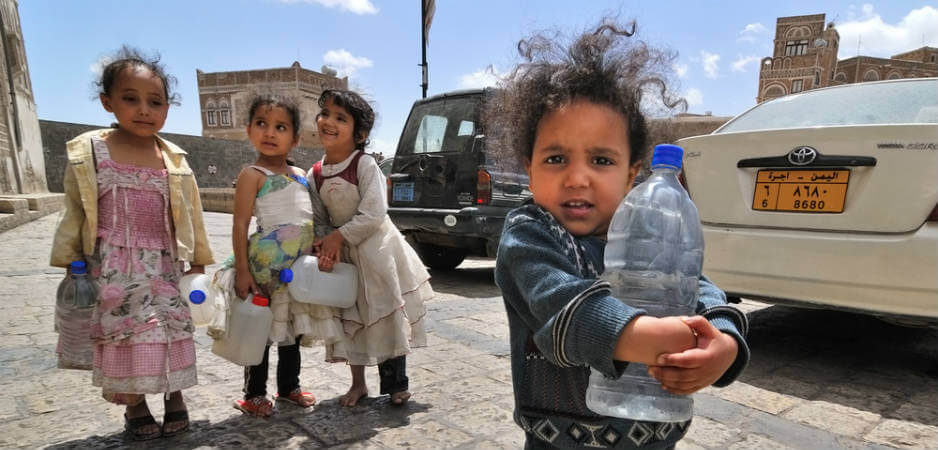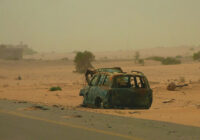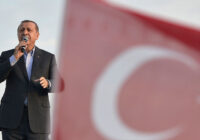So far, only 15% of Yemen’s needs in terms of humanitarian assistance for 2017 has been funded.
Since April 2017, cholera has taken over 1,600 lives and infected more than 250,000 people in Yemen. Half of those infected are children.
The conflict in Yemen has been ongoing for two years. Why did this cholera epidemic break out now? While it is difficult to pinpoint a single explanatory factor, the increased fragility of governance has led to the near collapse of the country’s already fragile water, sanitation and health systems. Another contributing risk factor is Yemen’s worsening famine crisis that has left two-thirds of the population food insecure. Aid and humanitarian agencies are stepping up their responses in an attempt to contain the cholera epidemic. However, unless the conflict de-escalates and governance improves, Yemen remains at risk of facing recurring health crises.
In 2015, the Houthi rebel group allied with deposed President Ali Abdullah Saleh and took over the capital city of Sanaa, causing a near collapse of government. This prompted a military intervention led by Saudi Arabia, the United Arab Emirates and eight Arab allies, which aims to reinstate an internationally recognized government led by President Abd Rabbuh Mansour Hadi. What the Saudi-led coalition hoped would be a swift military victory turned into a prolonged quagmire with severe humanitarian consequences.
Today, more than two-thirds of the Yemeni population lack access to clean water and sanitation. Across the country, waste collection services have stopped since the war began in 2015, and unpaid public salaries further challenge any attempts to resume them. Municipal workers in Sanaa, for example, have not received their wages for months and decided to go on strike in May 2017. Even though the strike only lasted for a week, the consequences were dire, leaving the city filled with trash, with residents fearful of the health hazards of uncollected garbage.
The wage crisis has also impacted the health workers: Over 30,000 of them have not been paid for 10 months. They are also operating on very limited capacity; less than 45% of Yemen’s health facilities and hospitals are open. Many facilities were bombed by the Saudi-led coalition. With limited resources, hospitals cannot separate cholera patients from other patients, and it is possible that more people will become infected while in the hospital for other treatments.
The task of supporting access to health care, water and sanitation in Yemen presents two major challenges. The first relates to resolving unpaid salaries in the absence of a well-functioning central bank. Yemen’s central bank, which is responsible for paying the salaries of over 1.2 million public employees, was one of the last operational state institutions in the country. In an effort to weaken the Houthi rebels, the Hadi government decided to move the central bank from the Houthi-controlled Sanaa to Aden in September 2016. This decision politicized the bank and rendered it dysfunctional. Millions of public employees have not received their full salaries since summer 2016, and the millions of Yemenis who are dependent on these salaries no longer have a sustainable source of income.
The second challenge stems from the fragmentation of authority into multiple spheres of influence, which has made service delivery more difficult. International and regional aid agencies have relatively better access to Aden and the southern governorates as they fall under the authority of the internationally recognized Hadi government. But aid is harder to deliver in Sanaa, and many northern governorates controlled by the Houthis that face an ongoing air and naval blockade imposed by the Saudi-coalition.
Delivering aid to the Houthi-controlled areas remains an important objective, as half the suspected cholera cases are reported from four Houthi-controlled areas. As a rebel group, the Houthis govern by providing — or denying — security and basic services. While they face pressure from local communities to provide services, the Houthis have a bigger incentive to allocate funds to support their fighters rather than invest in health care or basic services.
In practice, cholera is relatively easy to treat with oral rehydration salts to compensate for the quick loss of fluids that can be fatal; a rehydration IV can save a patient’s life. Yet in reality, there are many obstacles to delivering medicine to both government and rebel-held areas in Yemen. Further, early detection and diagnosis are difficult as infected patients may not show symptoms until their condition worsens and they face a small window of time to seek out medical help.
In order to effectively respond to the emergency in Yemen, relief agencies require both access to the country’s most affected populations and additional funds. The United Nations Security Council Presidential Statement on Yemen in June 2017 called an increase of access to Sanaa’s airport and the rebuilding of destroyed cranes at the port of Hodeida where Yemen receives 80% of its food, goods and humanitarian assistance. Humanitarian agencies have requested $2.1 billion to cover Yemen’s needs for 2017, however, only 15% of that amount has been funded.
Preventing cholera and other diseases is not a purely technical mission. It is inherently a political one because it relates to questions of governance, authority and service provision. The Saudi-led coalition, the Houthi-Saleh camp and all warring factions must heed the calls of the UN envoy, Sheikh Ould Ismail, to reach a cessation of hostilities and resume political negotiations. The sooner the war ends, the sooner Yemenis can work to strengthen good governance and put an end to hunger and disease.
*[Young Professionals in Foreign Policy is a partner institution of Fair Observer.]
The views expressed in this article are the author’s own and do not necessarily reflect Fair Observer’s editorial policy.
Photo Credit: Oleg Znamenskiy / Shutterstock.com
Support Fair Observer
We rely on your support for our independence, diversity and quality.
For more than 10 years, Fair Observer has been free, fair and independent. No billionaire owns us, no advertisers control us. We are a reader-supported nonprofit. Unlike many other publications, we keep our content free for readers regardless of where they live or whether they can afford to pay. We have no paywalls and no ads.
In the post-truth era of fake news, echo chambers and filter bubbles, we publish a plurality of perspectives from around the world. Anyone can publish with us, but everyone goes through a rigorous editorial process. So, you get fact-checked, well-reasoned content instead of noise.
We publish 2,500+ voices from 90+ countries. We also conduct education and training programs
on subjects ranging from digital media and journalism to writing and critical thinking. This
doesn’t come cheap. Servers, editors, trainers and web developers cost
money.
Please consider supporting us on a regular basis as a recurring donor or a
sustaining member.
Will you support FO’s journalism?
We rely on your support for our independence, diversity and quality.







